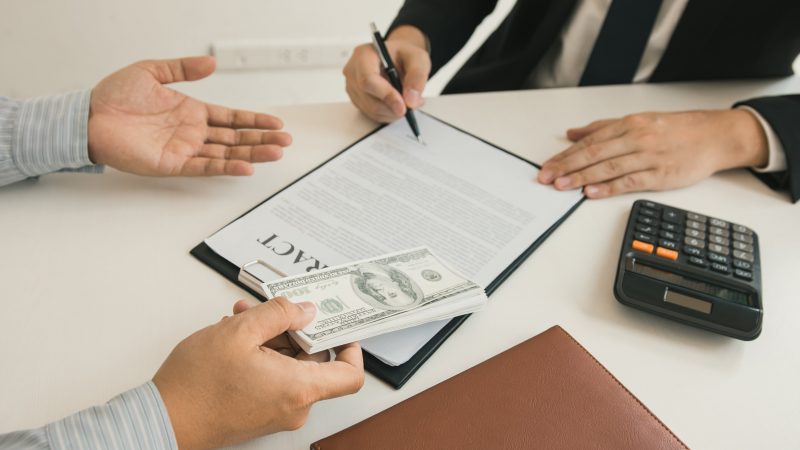Definition of Sole Proprietorship

Sole proprietorship is a business structure in which a single individual owns and operates the business. The sole proprietor is personally liable for all debts and obligations incurred by the business.
A sole proprietorship is the simplest and most common type of business structure. The sole proprietor has complete control over the business and its assets. The main advantage of a sole proprietorship is that it is easy to set up and maintain. There are no legal requirements to form a sole proprietorship, and the sole proprietor can make all decisions about the business without consulting anyone else.
However, the biggest disadvantage of a sole proprietorship is that the sole proprietor is personally liable for all debts and obligations of the business. This means that if the business cannot pay its debts, the sole proprietor may have to use personal assets, such as a home or savings, to pay off creditors.
If you are thinking of starting a business, you should weigh the pros and cons of a sole proprietorship before making a decision.
What are the characteristics of a sole proprietorship?
There are many different types of business entities in the United States, each with its own unique set of characteristics. Perhaps the most common type of business entity is the sole proprietorship. A sole proprietorship is a business that is owned and operated by a single individual. This individual is known as the sole proprietor.
There are several key characteristics that distinguish a sole proprietorship from other types of business entities. First, a sole proprietorship is relatively easy to establish. There are no complex formation procedures that must be followed in order to create a sole proprietorship. All that is typically required is for the individual to begin conducting business under their own name.
Second, a sole proprietorship is typically less expensive to operate than other types of businesses. This is because there are no additional costs associated with maintaining a separate legal entity. The sole proprietor is also not required to pay taxes on the business income as they would if the business was a separate entity.
Third, a sole proprietorship offers the owner complete control over the business. The sole proprietor has the final say in all decisions made about the business. This includes decisions about how the business will be operated, what products or services will be offered, and how profits will be distributed.
Fourth, a sole proprietorship is often less formal than other types of businesses. There are typically no written agreements or contracts between the owner and the business. This can make it easier to start and operate a sole proprietorship, but it can also make it more difficult to transfer ownership or raise capital.
Finally, a sole proprietorship offers the owner limited liability protection. This means that the owner is not personally liable for debts and losses incurred by the business. However, this protection may be limited if the sole proprietor commingles personal and business funds or fails to maintain adequate insurance coverage.
Overall, a sole proprietorship can be a good choice for individuals who want to start their own business with relatively little hassle and expense. However, it is important to understand the limitations of this type of business before making the decision to operate as a sole proprietor.
Pros and cons of sole proprietorship
There are many different types of business structures available to entrepreneurs when they start a new business. One option is a sole proprietorship, which is a business that is owned and operated by a single individual. While there are some advantages to this type of business, there are also some disadvantages that you should be aware of before you decide to go this route.
Advantages of a Sole Proprietorship
One of the biggest advantages of a sole proprietorship is that it is relatively easy to set up and get started. You don’t have to deal with the paperwork and red tape that comes with setting up a corporation or partnership. In addition, sole proprietorships are usually less expensive to start than other types of businesses because there are fewer startup costs.
Another advantage of a sole proprietorship is that the owner has complete control over the business. As the sole owner, you get to make all the decisions about what products or services to offer, how to market the business, and how to run the day-to-day operations. This can be both a good and a bad thing, depending on your personal management style and business acumen.
Disadvantages of a Sole Proprietorship
One of the biggest disadvantages of a sole proprietorship is that the owner is personally liable for all debts and obligations of the business. This means that if the business fails, the owner’s personal assets could be at risk. In addition, sole proprietorships can be more difficult to get funding for because banks and investors may be hesitant to lend money to a business with only one owner.
Another downside of a sole proprietorship is that it can be difficult to separate your personal life from your business life. Because you are the only owner, you may find yourself working long hours and taking work home with you. This can make it difficult to maintain a healthy work/life balance.
So, what’s the bottom line? There are both advantages and disadvantages to starting a sole proprietorship. It’s important to carefully consider all of your options before deciding which type of business structure is right for you.






